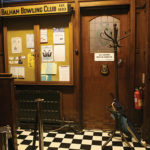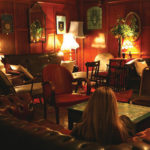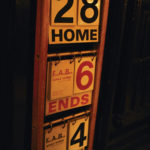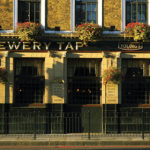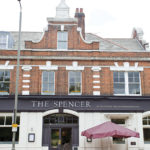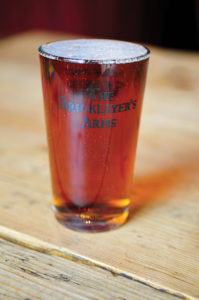 Traditional boozers may be having a hard time across much of London – but not in Wandsworth.
Traditional boozers may be having a hard time across much of London – but not in Wandsworth.
By August next year, 120 of Wandsworth’s 177 pubs will be excluded from permitted development rights. The move massively reduces the risk of their sudden – and often unpopular – redevelopment as shops or homes.
An Article 4 direction by Wandsworth Council means the pubs – stretching across the borough from the Spencer Arms in Putney to the Balham Bowls Club – will now face standard planning rules, rather than the short-cut of PDR.
Some pubs that are currently closed – including the White Lion in Putney High Street and the Brewery Tap in Wandsworth High Street – have also been given protection in a bid to encourage their owners to bring them back into use.
The proposal has won widespread applause from drinkers drowning their sorrows over the loss of more than 1,300 pubs in the past decade – and raised eye-brows of admiration from other London boroughs.
Geoff Strawbridge, the Campaign for Real Ale’s regional director for Greater London, says: “I would like to see every planning authority in the country follow Wandsworth’s exemplary initiative in protecting its pubs and bars by removing permitted development rights.”
So far the pub freeholders have remained silent on the matter.
Jonathan Cook, deputy leader of Wandsworth Council, says: “If pub owners are angry, they are keeping quiet about it. Anger might come and if it does we will deal with it, but I hope owners feel this designation makes their pub special.”
Cook says owners should consider the designation as a “badge of honour”, a bit like listed building status.
“If anyone wants to do anything to these buildings, we would like to know first, rather than have a nasty sudden surprise where a much-loved pub becomes a supermarket,” he adds.
It was a threat to redevelop Tooting’s Wheatsheaf as a supermarket that inspired the council’s decision. Tooting MP at the time – and now mayor of London – Sadiq Khan led the fight.
Cook is adamant that the Wandsworth plan is not about protecting loss-making pubs.“We are not trying to prop up failing businesses. All the pubs on our list are thriving, but the problem is that the residual land values are one of the drivers behind redevelopment, and so is the changing face of London. Demand for more mini-supermarkets is significant,” he says.
Ash Griffiths, partner in London residential development at Strutt & Parker, and a regular in Chelsea’s watering holes, says: “Removing pubs from PDR may lead to more pubs staying open and won’t have a significant effect on the delivery of housing. It will not prevent developers from undertaking residential development on pub sites – they will still be able to pursue the venture through the planning process.”
Griffiths says the problem facing pub redevelopment is not planning, but expensive-to-convert Victorian buildings, which do not make for easy or profitable development. “Pubs don’t convert well,” he says. “And if it works you might get six residential units for the same time and effort you would put in to delivering 20.”
Ross Kirton, head of UK leisure agency at Colliers International, says Wandsworth’s decision is to be applauded because it makes more sense than designating pubs as “assets of community value”.
Kirton says the PDR exemption is clean and simple, whereas designation as an asset of community value is not. “The status of assets of community value is a bit vague and can leave pubs in limbo,” he says.
He warns that while London will probably always have pubs, it may not need so many – and the risk of redevelopment remains.
“The British pub is changing – the leisure and food offer was once just a dartboard and a packet of crisps, but those days are gone. The casual dining sector has taken its toll on the customer base, and the focal point of going out has moved slightly towards food. But there is still a place for the well-maintained traditional pub,” says Kirton.
Before he nips out – perhaps for a swift half? – Kirton has a final thought about PDR. He wonders whether another Article 4 exemption might be useful if it helped prevent the cull of licensed premises in London under pressure from neighbour complaints. September’s closure of Islington nightclub Fabric demonstrated the plight of late-night venues.
“It doesn’t help when apartments are built next-door to licensed premises,” says Kirton. “The nice beer garden closes, then the whole thing closes. I wonder if there could be more thought on the layout of the townscape?”
An interesting thought: worth considering over a pint, maybe?
Where it all began
Tooting Bec’s Wheatsheaf came under threat in 2014. With a general election looming, Labour MP Sadiq Khan and his Conservative opposite number launched a joint campaign to save the venue, where a ground-floor supermarket and nine flats were planned.
The timing was unfortunate for freeholder Enterprise Inns, and by late 2014 a localised PDR exemption was in place for the Wheatsheaf.
That has now been extended to 119 other Wandsworth pubs.
The business is now operated by Urban Pubs and Bars, the company formed in 2014 by Realpubs founders Nick Pring and Malcolm Heap.
More trouble for PDR?
Wandsworth is pondering a further Article 4 direction to remove some office-to-residential conversions from the scope of the permitted development rights rules. Islington tried something similar in 2014 but it was quashed by the government. Richmond, faced with the loss of 600,000 sq ft of office space, also attempted an Article 4 direction, but it was modified by ministers.
A briefing prepared for think-tank London Councils last year suggests PDR is doing serious damage to local office markets, taking 8.9m sq ft out of use and pushing up rents in some localities. But using Article 4 directions for pubs is new in London.
A London Councils spokesman said: “London Councils is concerned by the loss of pubs through permitted development. We support the increased use of Article 4 directions to protect pubs and believe that boroughs should have control over permitted development rights in their areas to ensure that potentially harmful development proposals can be assessed through a full planning process.”
Lend us £4.3m for a pint?
A Tooting pub is about to provide a test of the “asset of community value” rules – if campaigners can raise £4.3m.
Tooting High Street’s Constitutional Club, which has faced demolition since 2014, was designated an asset of community value under the Localism Act 2011.
Now the landlord, Tooting Development Company, has indicated that it will sell, meaning campaigners had until early October to express an interest, and until 25 February 2017 to complete a purchase.
The owner paid £4.3m for the premises in June 2014 – a formidable sum for campaigners to raise.
• To send feedback, e-mail stacey.meadwell@estatesgazette.com or tweet @EGStaceyM or @estatesgazette








